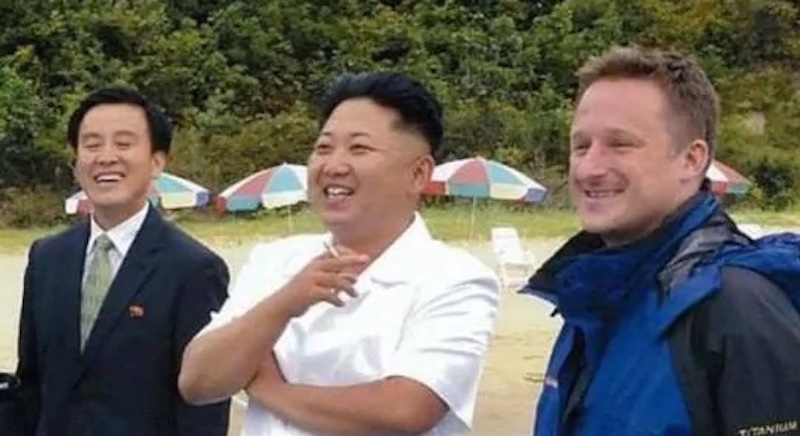Canada ignored the lifeline China threw us last spring, when a Chinese court adjourned the trial of Michael Spavor without a verdict.
The implication at the time was clear: Let Meng Wanzhou go and we’ll give Spavor and Michael Kovrig back.
Pleading not very persuasively that our hands were tied by the rule of law, the Canadian government passed on that opportunity and left the two Michaels sitting in jail on espionage charges.
They have now been stuck there for 975 days, since they were arrested on espionage charges days after Meng, the chief financial officer of Huawei Technologies Co. Ltd., was detained at Vancouver airport in December 2018 at the behest of U.S. authorities.
It is widely believed, probably correctly, that the two Michaels were arrested in a tit-for-tat strategy to put pressure on Canada to release Meng, a high-profile Chinese high-technology executive with close ties to the country’s government.
So, yesterday, with Meng’s extradition hearing still grinding on in Vancouver, a Chinese court found Spavor guilty of spying and sentenced him to 11 years in prison.
This is harsh, although it is worth remembering that the last Canadian found guilty on similar charges, by a Canadian court, was sentenced to 20 years, and released on parole after five.
No verdict has yet been announced in the case of Kovrig. But another Canadian citizen, Robert Schellenberg, faces a death penalty after being found guilty of drug trafficking. This too is seen as part of the Chinese government’s campaign to press Canada to free Meng.
The Chinese court said yesterday that Spavor would be deported, but didn’t make it clear if that would be now or later. The prevailing opinion on this side of the Pacific seems to be that this will depend on Meng’s fate in Vancouver.
So the door remains open a crack for Canada’s leaders to act in the interests of Canada’s citizens and let Meng go.
The narrative widely accepted in Canada is that because of our commitment to the rule of law our country had no choice but to go along with the U.S. extradition request, even though holding Meng is obviously not in Canada’s interest.
Still, as has been said here before, out of the 300,000 or so Canadians residing in China, the authorities there picked two with the kind of backgrounds, jobs and contacts that could plausibly facilitate activities of the sort the Chinese accused them of conducting.
Spavor ran “an international non-governmental organization that facilitates sport, culture, tourism and business exchanges with the Democratic People’s Republic of Korea.” He is said to have been close to North Korean dictator Kim Jong-un, with whom he has often been photographed.
Kovrig is a former Canadian diplomat who works for a non-governmental organization that vaguely describes itself as “an independent organization working to prevent wars and shape policies that will build a more peaceful world.”
Meng, meanwhile, has remained under house arrest in Vancouver ever since her arrest while the Canadian court ponders at excruciating length whether she should be extradited to the United States for supposedly ignoring American sanctions against Iran, even though Canada and other Western countries had not enacted similar sanctions.
If she is extradited, Meng will be tried on Trumped up fraud charges levelled by the previous Republican Party administration as a trade negotiations tool. Donald Trump himself publicly admitted as much when he was still president of the United States.
Unfortunately for Canada and its citizens in China, the current Democratic Party administration has seen fit to continue the U.S. effort to take Meng from her current comfortable imprisonment and deliver her into the American penal Gulag as part of its performative New Cold War with China.
Meanwhile, Canadian federal politicians of all parties, like the proverbial deer in the headlights, watch the drama unfold and seem incapable of doing anything useful, although the always-belligerent Conservatives are noisier about it.
While Spavor’s verdict was being delivered in China, a Canadian government lawyer was urging the judge in Vancouver to demonstrate due deference to the government of the superpower next door. Notwithstanding all the shenanigans and legal shortcuts by U.S. officials raised by Meng’s lawyers, he argued, “the court has to be circumspect in impugning the good faith of our extradition partners.”
Given their record so far, though, it seems likely our politicians’ paralytic inability to act in the country’s interests will persist.
We earn no respect and no consideration for such servility to the United States. And that, obviously, is true whether a Democrat or a Republican resides in the White House.
By letting Meng go, not only could we do some good for the two Michaels and the hapless Mr. Schellenberg, but perhaps even the other 120 or so Canadians imprisoned in China, who for some reason our government is less enthusiastic about repatriating.
No good at all will come for Canada or its citizens from our continued participation in the U.S. legal charade to use Meng as a pawn in its campaign to prove to a rising China it’s still the biggest dog on the global block.
David Climenhaga, author of the Alberta Diary blog, is a journalist, author, journalism teacher, poet and trade union communicator who has worked in senior writing and editing positions at The Globe and Mail and the Calgary Herald.
Image: Michael Spavor/Facebook



